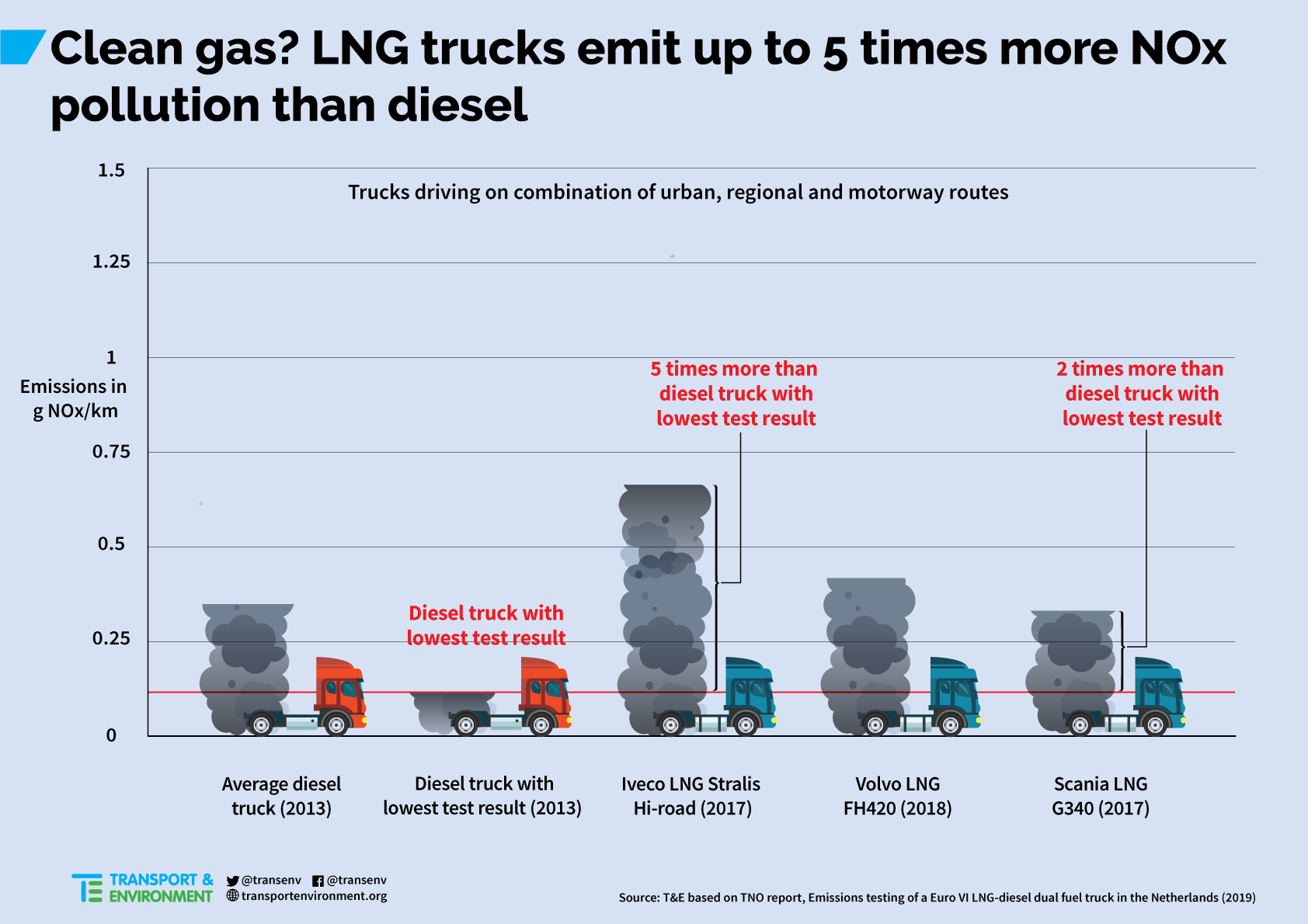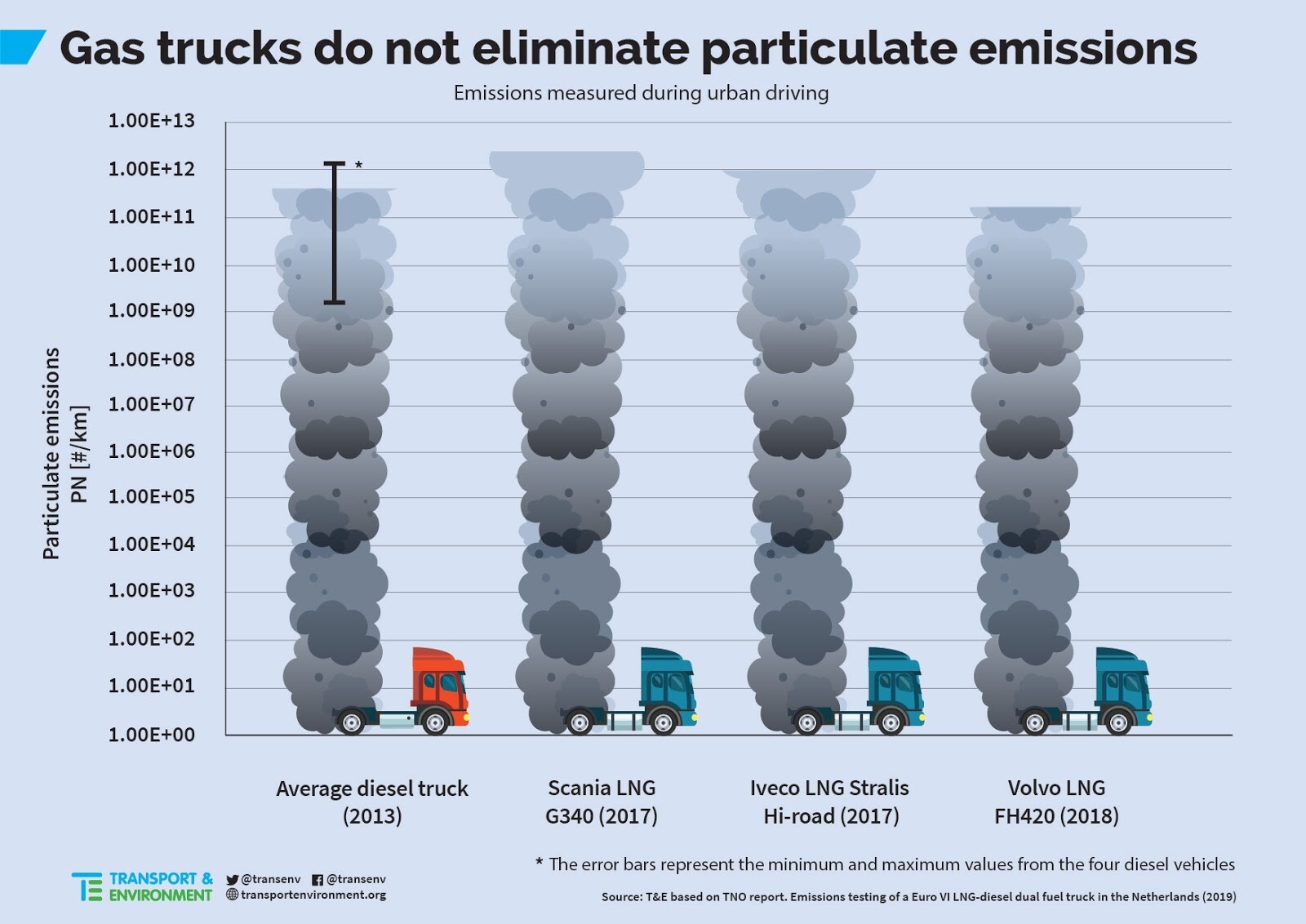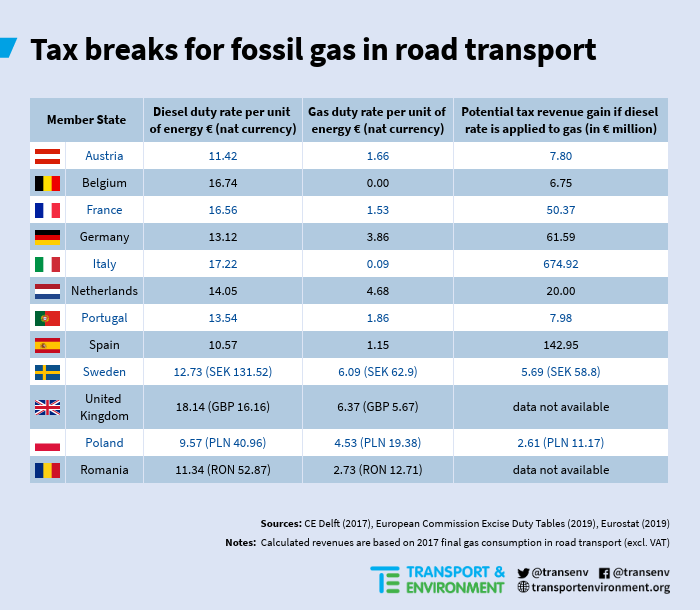
Interested in this kind of news?
Receive them directly in your inbox. Delivered once a week.
The three LNG trucks tested emit 2 to 5 times more poisonous NOx than the diesel truck with the lowest test result when driven in a combination of urban areas, regional routes and motorways. When driven in towns and cities, the gas trucks release 2 to 3.5 times more NOx than the tested diesel truck with the lowest emissions. Trucks powered by biomethane (biogas) would have the same air pollutant emissions as trucks running on fossil gas because the fuel characteristics are the same.
Stef Cornelis, clean trucks manager at T&E, said: “Gas trucks are not clean and can actually be worse than diesel. It’s time for policymakers to have a fresh look at the evidence and put an end to gas truck subsidies, LNG infrastructure investments and tax breaks for what is just another polluting fossil fuel.”
The on-road tests also show that all three gas trucks tested produce levels of particle emissions comparable to diesel trucks.[3] Particles can penetrate deep into the lungs and be absorbed into the blood, causing heart disease, strokes and lung cancer.[4] These findings are in sharp contrast to truckmakers’ advertisements claiming that with LNG trucks particle emissions are almost completely eliminated.[5] [6]
Gas trucks are also a dead-end to decarbonise trucking: the Scania and Iveco trucks with spark ignition engines recorded tailpipe greenhouse gas (GHG) emissions just 3 to 5% lower than the diesel truck with the lowest test result. Volvo’s LNG truck with high pressure direct injection (HPDI) reduces emissions by 14%. However, T&E calculations show that when the extraction and transportation of the gas, including methane leakage, is factored in, spark ignition LNG trucks are worse for the climate than diesels, while HPDI gas trucks are only delivering a small benefit.[7]
Despite this, fossil gas used in transport is supported by EU governments with tax breaks, road toll exemptions and subsidies (see table below). Without these subsidies there would be no market for gas in transport.
Stef Cornelis concluded: “The gas industry is desperate to convince policymakers that gas trucks have a climate benefit because they want to grow their market. The simple fact is that it’s a fossil fuel just like oil and coal, so it needs to be phased out.”
Notes to editors:
[1] https://www.cryogas.pl/pliki_do_pobrania/artykuly/Cryogas_IVECO_Report._Polish_road_tests_.pdf
[2] https://www.scania.com/group/en/its-a-liquefied-gas/
[3] Particle number emissions of the three LNG vehicles were measured on the road with PEMS equipment while the average results of four diesel vehicles were determined from lab based tests (chassis dynamometer).
[4] https://www.who.int/en/news-room/fact-sheets/detail/ambient-(outdoor)-air-quality-and-health
[6]
https://www.scania.com/group/en/its-a-liquefied-gas/
[7] Tank-to-wheel emissions based on the data from testing carried out for the Netherlands government by TNO. Well-to-tank and well-to-wheel emissions based on T&E analysis using input data from Volvo Trucks’ environmental footprint calculator that increase emissions by 9 percentage points, as outlined further in the report itself. Adding these upstream emissions results in a well-to-wheel GHG benefit for the Volvo truck of approximately 5%.
Read more:
Report: Do gas trucks reduce emissions? (available in EN, DE, FR, IT, ES, PL)




